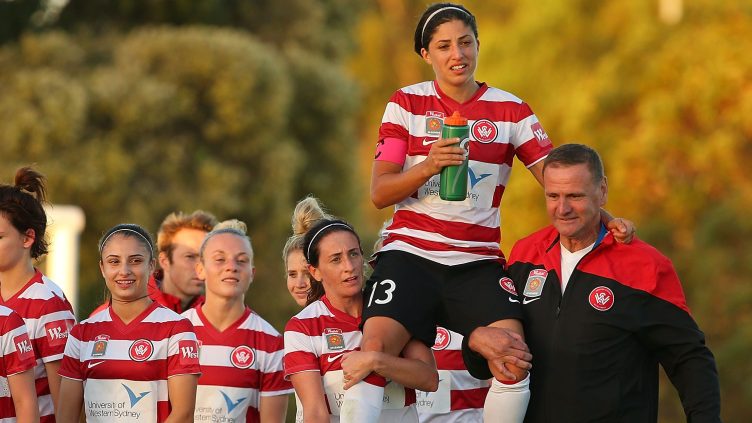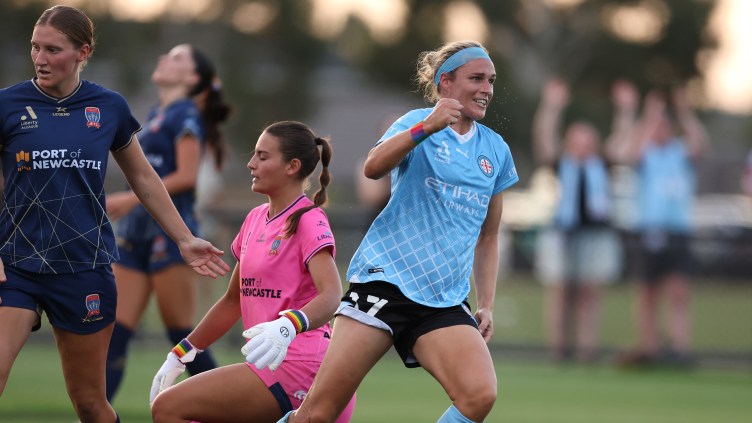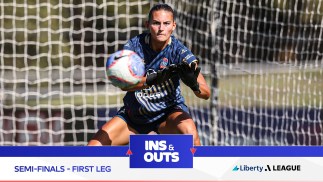Sara Bjork Gunnarsdottir’s landmark maternity case against former club Lyon in France is a story that grabbed the attention of the footballing world, including the Dub Zone crew.
Gunnarsdottir, who captained Iceland at the Women’s Euro 2022, became pregnant in 2021 and gave birth in November that year. However, she only received two months of her full salary.
Lyon agreed to reimburse Gunnarsdottir for those missed months but refused to pay her any further wages, citing French law. That led to the intervention of FIFPRO and a successful court case against the most successful team in UEFA Women’s Champions League history.
FULL TRANSCRIPT: COACH & PUNDIT DEBATE CONTROVERSIAL COMBINED XI
Gunnarsdottir will receive €82,094.82 (A$126,000), as well as 5% interest per annum as from 10 September, 2021, until the full payment is made.
More importantly, this case has highlighted the significance of mandatory regulations to protect pregnant players.
For former A-Leagues player and Western Sydney Wanderers head coach Catherine Cannuli, it rekindled memories of her own experiences in Australia and just why she stepped away from the game.
“When this story did come back, it actually touched a few heartstrings for me,” coach-turned-pundit Cannuli said on the latest edition of Dub Zone on Saturday.
One of the reasons why I stepped away from football… (was) Heather Garriock falling pregnant and all the issues that we went through. I thought, ‘if Heather is being treated this way (and) not able to continue her journey as a footballer’, what chance do I have?
“That’s when I said my playing career has come to an end point.”
The story Cannuli is referring to centres on Matildas and A-Leagues legend Heather Garriock – a former teammate.
In 2016, Football Australia (then known as Football Federation Australia) refused to reimburse Garriock for the costs of a carer for her 11-month-old child during a 2013 tour of the United States.
The NSW Civil and Administrative Tribunal did not believe the FFA’s rejection constituted a discriminatory act.
Co-CEO of the Professional Footballers Australia (PFA), Kate Gill, joined Dub Zone to discuss the Gunnarsdottir matter and some of the obstacles faced by not only women, but men.
“I do feel sorry for those players that actually had to come to terms with that and made the decision to stop playing football purely because they wanted to become parents and the way that Heather was treated was appalling at the time,” she said.
“There was no support offered to her and you could see how hard it was for her to continue playing even though she wanted to.
“There’s such a stigma around taking time off to care for your family and interact with (them), especially when you have a new addition so we have a really long way to go.”
For all the publicity around Gunnarsdottir’s high-profile case, it highlighted the fact there is still work to be done in the maternity department within football.
“I think it shouldn’t have ever been tested in the first place,” said Gill, referring to the ruling. “There are strict regulations that have been agreed and all the clubs and the member federations are well aware of them.
“They do receive circulars from FIFA which was explaining what has been mandated and I think it speaks to the broader understanding that while women’s football is developing, it’s still developed within a male structure and male framework so it’s how do we shed a light on these female issues and also male issues as well.
We need to challenge that and what it looks like for male paternity and them becoming fathers as well.
“I think there are a lot of learnings that need to go on and understanding, but tribute to Sara Bjork for actually seeing this through and understanding what her rights were and belonging to the Union that can actually protect and preserve those rights for her.”
Australian football has come a long way – look no further than 2019’s ground-breaking collective bargaining agreement.
The Matildas reached equal pay, which stipulated the parental leave policy will be revised and last year’s revision ensured players were protected during pregnancies as the support for female footballers continues to grow.
“Part of that negotiation process was around having a national team’s parental management policy and the standards within that policy far exceed what FIFA have provided as a mandatory requirement,” Gill – who played 86 games for the Matildas – explained.
It goes further, it looks after pregnancy – not just having the child but also through foster and adoption.
“There’s a 12-month paid parental leave that goes to the primary caregiver. There are three months for fostering and adoption and 100% of the players’ contract entitlements are paid to them as well and then there’s also consideration for transferring that player to a non-playing role, how we reintegrate players into elite sport and elite football after they come back from pregnancy.
“It’s a broad-reaching policy and I think we’re leading in that regard. Cricket have been really progressive in this space so we did draw inspiration for them, but I think it’s fantastic that our national team members have those protections.”
















